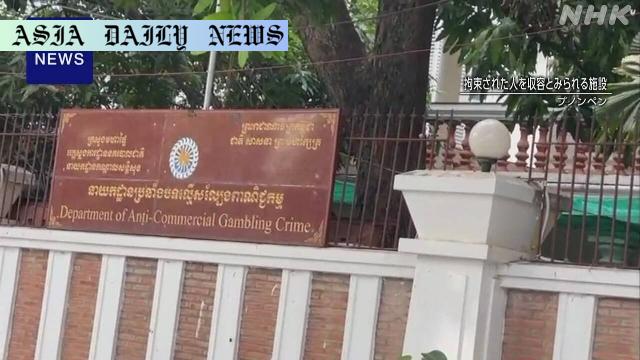Detention: Over 20 Japanese nationals reportedly found in Cambodian facility linked to online scams, raising serious concerns.
Local authorities detained over 20 Japanese nationals in Cambodia.
Their location was allegedly used as a base for online scams.
Japanese police are investigating the details of the incident.

Introduction to the Detention of Japanese Nationals in Cambodia
In a recent incident that has sparked widespread concern, over 20 Japanese nationals were detained by local authorities in northwestern Cambodia near the Thai border. According to sources, the individuals were discovered in a building linked to online scam activities. This revelation has not only highlighted the growing threat of cross-border cybercrimes but has also raised questions regarding international cooperation in combating such activities.
The Circumstances Surrounding the Arrest
The detained individuals were found in a building located in a region notorious for malpractices and illicit operations. Sources reveal that this particular building played a pivotal role in conducting online scams targeting individuals and organizations globally. Cambodian authorities, acting on intelligence reports, conducted a raid that led to these arrests. Early reports suggest that the detainees may have been complicit in scam operations, though investigations are still ongoing.
Response from Authorities
Following the detention, both Cambodian and Japanese authorities have intensified their investigations to uncover the full extent of the operation. Japan’s police force has expressed its commitment to understanding how such a significant number of its nationals became embroiled in the alleged scam. Meanwhile, Cambodian law enforcement has emphasized their zero-tolerance stance on criminal activities within their borders, particularly those involving foreign nationals.
Implications and Broader Concerns
This incident underscores the pressing need for international collaboration in addressing cybercrimes and related activities. The involvement of foreign nationals in illicit operations within Cambodian territory signals vulnerabilities in monitoring and tracking cross-border activities. Moreover, it highlights the importance of educating individuals about the dangers and consequences of participating in scams.
Conclusion
The detention of over 20 Japanese nationals in Cambodia is a stark reminder of the evolving nature of criminal activities in the digital age. As investigations continue, this case will undoubtedly serve as a critical example of the challenges and complexities associated with combating cybercrime on a global scale. It also reemphasizes the need for collective vigilance and cooperation among nations to ensure the safety and security of all individuals.



Commentary
Understanding the Implications of the Detentions
When news breaks of such incidents, it brings to light the hidden underbelly of global cybercrime. The detention of over 20 Japanese nationals in Cambodia is particularly alarming because it points to the involvement of everyday individuals in highly organized criminal networks. Were these detainees willing participants, or were they lured into these operations by false promises? This is one of the many questions that require answers.
The Role of International Collaboration
The complexity of this situation shows why international cooperation is critical in fighting cybercrime. Crime today knows no borders, and without robust systems of communication and collaboration among nations, criminals can operate with virtual impunity. This incident is a wake-up call for governments and international organizations to strengthen their counter-cybercrime measures and improve information sharing.
Broader Lessons from This Incident
What’s most important to take from this incident is the need for vigilance—a watchful approach that governments, businesses, and individuals must adopt. Cybercriminal operations, like the one uncovered in Cambodia, thrive in ignorance and exploitation. Raising awareness about the methods and tactics used by such groups can empower people to protect themselves. Efforts on a global and grassroots level are required to combat the dangers of online fraud.